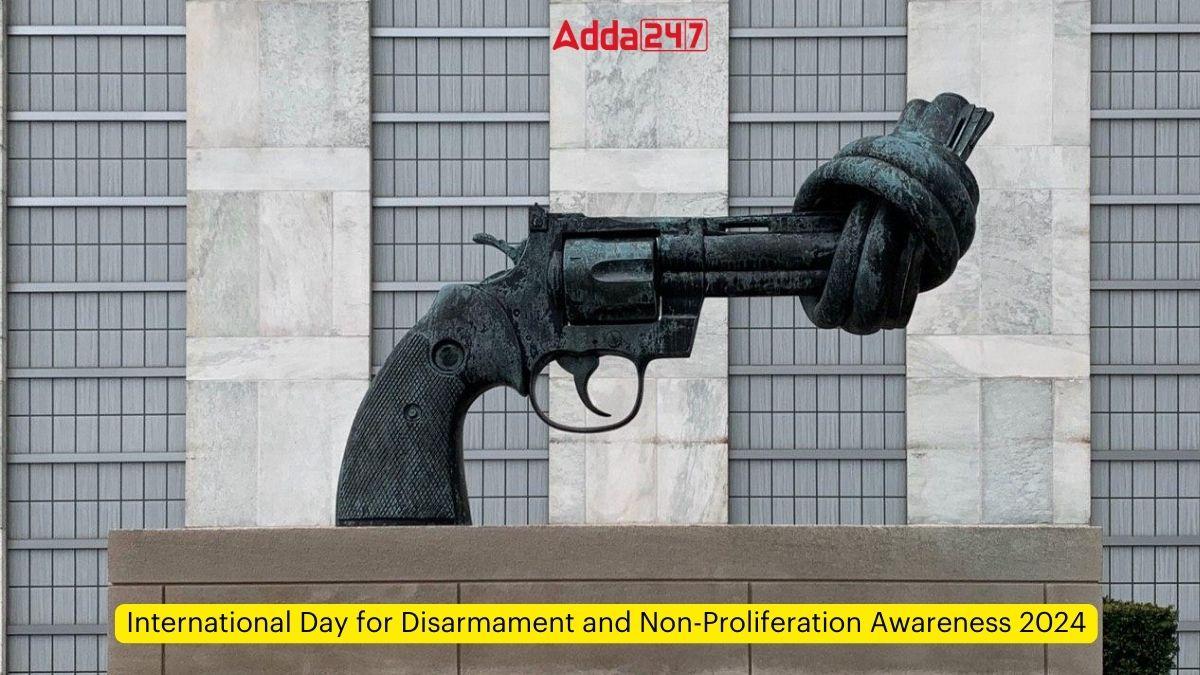Disarmament, as defined by the United Nations General Assembly (UNGA), involves the elimination of Weapons of Mass Destruction (WMD) alongside a balanced reduction of armed forces and conventional armaments. This aims to enhance stability at a lower military level while ensuring the security of all parties involved. Non-proliferation complements this by restricting the production and spread of nuclear or chemical weapons to non-state actors and rogue states.
History of International Day for Disarmament and Non-Proliferation
The inaugural International Day for Disarmament and Non-Proliferation Awareness was observed on March 5, 2023, following a UNGA resolution adopted on December 7, 2022. This annual event seeks to promote public awareness, particularly among youth, about the importance of disarmament.
Goals of the Day:
- Raise awareness about the dangers of WMDs and the significance of disarmament and non-proliferation.
- Educate individuals about relevant issues.
- Encourage actions aimed at reducing the threat of weapons and fostering peace and security.
Development of Weapons of Mass Destruction:
Since the Industrial Revolution, warfare has evolved significantly with the introduction of modern weaponry. The use of chemical weapons in World War I and the devastating impact of nuclear bombs in World War II underscored the urgent need for disarmament. The subsequent Cold War intensified the arms race, leading to the development of more potent nuclear arsenals.
Disarmament in the 21st Century:
In today’s multi-polar world, armed conflicts persist, fueled by modern weaponry and geopolitical rivalries. Despite escalating global military spending, internationally agreed disarmament obligations remain unfulfilled. The existence of 12,700 nuclear weapons poses an existential threat.
Challenges for Disarmament
The ongoing arms race and escalating military spending exacerbate global tensions. Despite efforts to reduce nuclear arsenals, discriminatory rules within the Non-Proliferation Treaty persist, hindering progress towards a nuclear-free world.
Non-Proliferation Progress:
While significant strides have been made in reducing nuclear arsenals, challenges remain. The dominance of a few nuclear powers underscores the need for a more inclusive and equitable approach to disarmament.
The Way Forward
Disarmament and arms control are paramount for global peace and security. It is incumbent upon world powers to prioritize peaceful conflict resolution and safeguard the future of generations to come.
Through education, awareness, and concerted action, the International Day for Disarmament and Non-Proliferation serves as a reminder of our collective responsibility to pursue a safer and more peaceful world.



 World Day for Audiovisual Heritage 2024,...
World Day for Audiovisual Heritage 2024,...
 International Dwarfism Awareness Day 202...
International Dwarfism Awareness Day 202...
 Commemoration of Sardar Patel’s 150th ...
Commemoration of Sardar Patel’s 150th ...

